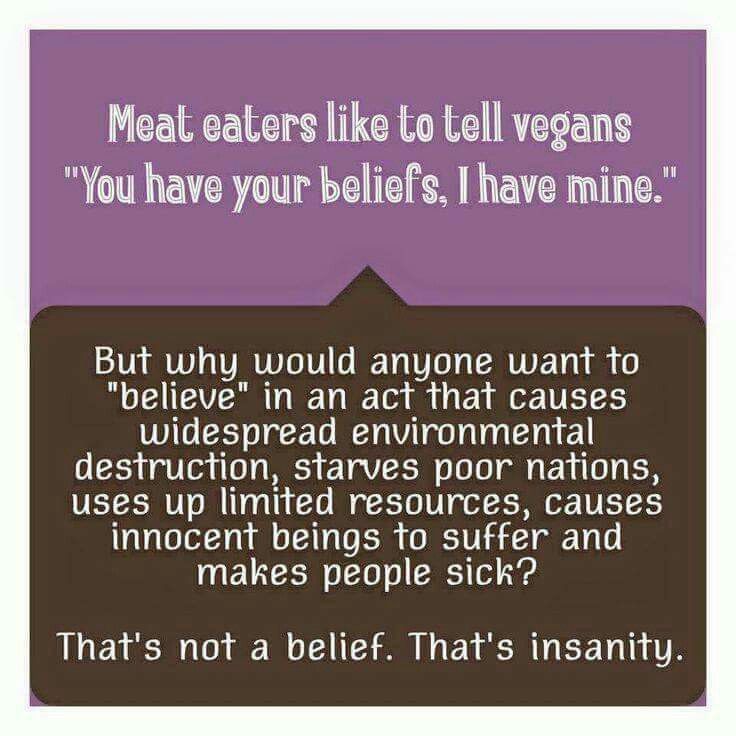Of the modern religions, it is the Pagan/Wiccan religions that celebrate Litha with the most passion. For those of us on the Northern Hemisphere, Litha (the ancient Germanic name for Summer), which is also known as Summer Solstice and Midsummer, is usually celebrated on June 21st, but varies somewhat from the 20th to the 23rd, depending upon the Earth's rotation around the Sun. During this time, the Earth is tilted closest to the Sun, giving us greater exposure to the Sun’s light and the longest day of the year.
“Solstice” comes from the Latin “sol” meaning sun, and “sistere,” to cause to stand still. As the summer solstice draws near, the noonday sun rises higher and higher in the sky each day. On the day of the solstice, it rises an imperceptible amount, compared to the day before, thus appearing to “stand still.” In the magical sense, Summer Solstice brings us to the halfway point of the Wheel of the Year. The sun is in full reign, reaching a peak in the sky and shedding beams of truth. The brilliance of the sun allows us to see things clearly, banishing shadows and releasing the past.
According to the old folklore calendar, Summer begins on Beltane (May 1st) and ends on Lughnassadh (August 1st), with the Summer Solstice midway between the two, marking MID-Summer. This makes more logical sense than suggesting that Summer begins on the day when the Sun's power begins to wane and the days grow shorter.
The Sun God is at his strongest. He is also the God of the Forest and is often depicted as seated at on a green wood throne. This God has become more commonly known to modern Wiccans as The Green Man.
Although Litha may seem at first glance to be a masculine observance, the day is also dedicated to the Goddess, and Her flowers are the white blossoms of the elder.
The themes of Summer Solstice are sex, love, creativity, energy, luck, health and wishes.
The joyous rituals of Litha celebrate the verdant Earth in high summer, abundance, fertility, and all the riches of Nature in full bloom. This is a time of strong magic and empowerment, traditionally the time for handfasting or weddings and for communication with the spirits of Nature. At Litha, the veils between the worlds are thin; the portals between "the fields we know" and the worlds beyond stand open. This is an excellent time for rites of divination.
Many who celebrated Litha did so wearing garlands or crowns of flowers, and included the yellow blossoms of St. John's Wort. The Litha rites of the ancients were boisterous communal festivities with morris dancing, singing, storytelling, pageantry and feasting taking place by the village bonfire and torch lit processions through the villages after dark. People believed that the Litha fires possessed great power, and that prosperity and protection for oneself and one's clan could be earned merely by jumping over the Litha bonfire. It was also common for courting couples joined hands and jump over the embers of the Litha fire three times to ensure a long and happy marriage, financial prosperity and many children. Even the charred embers from the Litha bonfire possessed protective powers - they were charms against injury and bad weather in harvest time, and embers were commonly placed around fields of grain and orchards to protect the crops and ensure an abundant reaping. Other Litha customs included carrying an ember of the Litha fire home and placing it on one's hearth and decking one's home with birch, fennel, St. John's Wort, orpin, and white lilies for blessing and protection.
The Litha Sabbat is a time to celebrate both work and leisure, it is a time for children and childlike play. It is a time to celebrate the ending of the waxing year and the beginning of the waning year, in preparation for the harvest to come. Midsummer is a time to absorb the Sun's warming rays and it is another fertility Sabbat, not only for humans, but also for crops and animals.
Wiccans consider the Goddess to be heavy with pregnancy from the mating at Beltane--honor is given to Her. The Sun God is celebrated as the Sun is at its peak in the sky and we celebrate His approaching fatherhood--honor is also given to Him. The faeries abound at this time and it is customary to leave offerings--such as food or herbs--for them in the evening.
The many sacred stone circles found around the globe (e.g. Stonehenge) were believed to have been built to celebrate this time. This longest day of the year marks the transition from cultivation to harvest. The significance of this day was not only practical but also held a much deeper, spiritual meaning. If you are lucky enough to live near a sacred stone circle plan a picnic and bring whatever supplies needed for your individual spells and rituals.
One can also create their own stone circle by selecting stones that you are able to feel a vibration from or are otherwise attracted to and placing them in a circle. Choose eight large stones and place them at equal distances at each spoke of the wheel. Fill in the spaces with smaller stones. Pagans may cast a circle prior to performing any spellcraft.
This is the time of year to write down any wishes you have and tossing them, along with a Litha inspired offering into a well, spring, or cauldron. For example, simply hold a small stone along with sprig of herbs in your right hand and meditate on the wish (or reasons to be thankful). Once you have filled up the stone with your meditation, toss it with intention into the water. If a cauldron was used, empty the contents into a stream or other body of running water when the spell is complete.
Litha has long been a time for unadulterated joy and pleasure. Litha is to be celebrated with intention but with an open heart. Focus on how grateful one should be that the Sun continues His tireless journey each year providing so much to all of us. Pick a few themes and simply set out to have a great time. Rise early with the Sun and plan a bonfire for later that night to further lengthen this day.
The following are utilized in Pagan ceremonies, rituals, and spells:
Herbs – basil, chamomile, daisy, elder, pine, St. John’s wort, thyme, yarrow, frankincense, fennel, lavender, and lily
Essential oils and incense – frankincense, lemon, lavender, sandalwood, lotus, jasmine, rose, wisteria, and myrrh
Colors – yellow, white, red, blue, green, tan
Decoration – anything reminiscent of the sun (yellows, reds, oranges), dried herbs, potpourri, fruits, summer flowers
Gemstones – any green stone (e.g. emerald)
Spellwork – Litha is the perfect time for any magick but is especially good for Animal Protection and Marriage & Vow Renewal spells
Cruelty-free vegan foods – lemonade, cookies and cakes decorated to honor the Sun, lemons, oranges, summer fruits, summer squash, pumpernickel bread, carrot drinks, plenty of ale
SUMMER SOLSTICE RECIPES
Sunshine Yogurt Parfaits
Ingredients:
4 or 5 6oz containers lemon soy yogurt, emptied into a bowl
2-3 cups granola
¼ cup or so of sunflower seeds
½ cup or so of golden raisins
2-3 cups pineapple, peach & cantaloupe chunks
Instructions:
Spread out all the different ingredients in various bowls and let everyone layer their own parfaits buffet-style.
Toast-point Sun Wheels
Trim crusts off 4 slices whole grain toast, spread w/almond butter & top w/orange marmalade. Cut each slice into 4 triangles and arrange pinwheel fashion on small plates. You can even make it look nicer by placing a cherry or strawberry in the center.
Sparkling Solar Punch
In a large bowl or pitcher, mix equal parts white cranberry & pineapple juices. Add a splash or two of seltzer (or champagne).
Golden Summer Solstice Soup
This golden medley evokes the brilliant sun on the longest day of the year. Adding a sprinkle of black poppy seeds to each bowl represents the darkness & dreams, reminding us that this is also the shortest night--a magickal midsummer's eve. This soup goes well with cheezy quesadillas, and then some homemade orange chocolate chip (vegan) sherbet for dessert to finish off the whole sun filled theme!
Ingredients:
1 medium onion(s)
1 large yellow pepper(s)
1 medium yellow summer squash
3 cup yellow tomatoes
1 large carrot(s)
1 medium Yukon Gold potato(es)
1 1/2 cup yellow corn
3/4 cup wax beans
1 1/4 tsp poppy seeds
Instructions:
If you can, get a yellow carrot. Otherwise try shredding the regular kind for just a hint of orange strands throughout the soup.
Brush the bottom of a soup pot w/grapeseed oil and set over med/low heat. Saute yellow onion, pepper, & squash till slightly softened. Add tomatoes, carrots, potato, yellow wax beans and corn, cover with vegetable broth and simmer till all veggies are completely tender and soft. If you'd like you can use an immersion blender or take out a cup or two and puree to make the soup nice and thick.
Cheezy Quesadillas
Looking the part of a perfect sun symbol, this goes very well with the Golden Summer Solstice soup.
Ingredients:
2 small corn tortilla
1 oz Follow Your Heart Cheddar flavor Vegan gourmet cheese
2 Tbsp salsa
Instructions:
Spread 1 tortilla w/salsa and sprinkle w/cheese. Top with second tortilla and fry in a pan brushed lightly with grapeseed oil, flipping once. It's done when the cheese melts.
Sunshine Orange Sherbet
This dessert is the perfect ending to a Summer Solstice meal. Top with vegan chocolate chips or sprinkles for a pretty and flavorful look.
Ingredients:
6 oz frozen orange juice concentrate
2/3 cup sugar
12 fl oz Silk Unsweetened Plain Soymilk
3/4 cup water
1 tsp vanilla extract
1 1/2 tsp orange zest
Instructions:
Place all ingredients in your ice cream maker and follow manufacturers directions.








